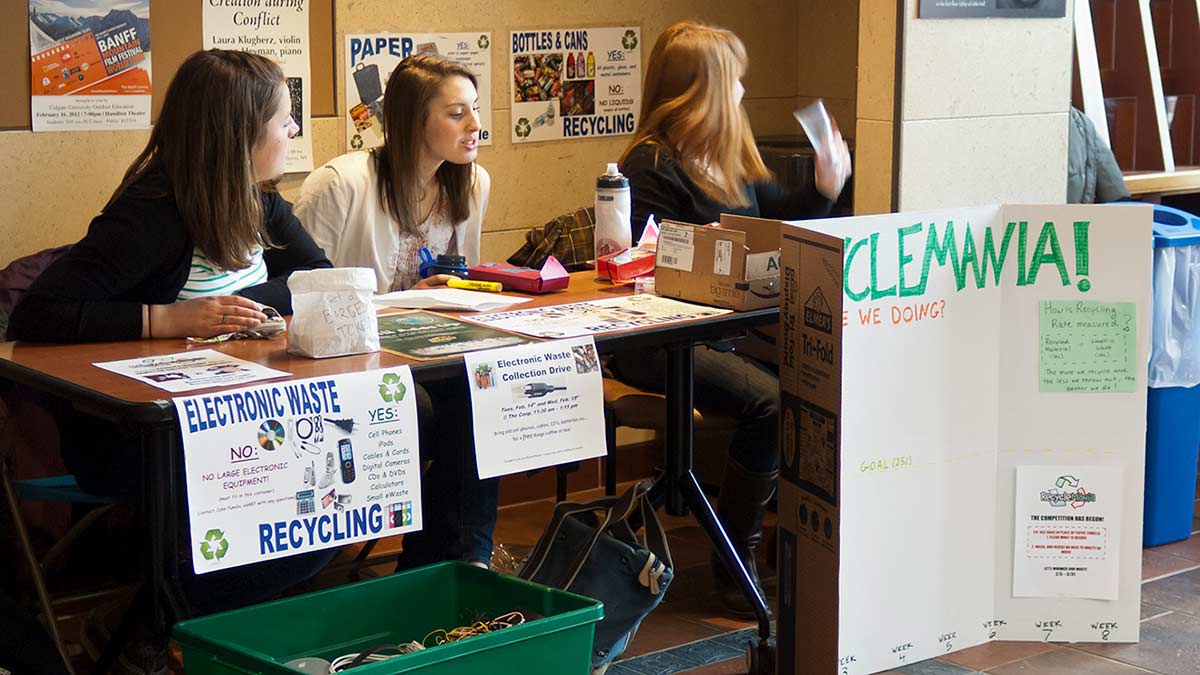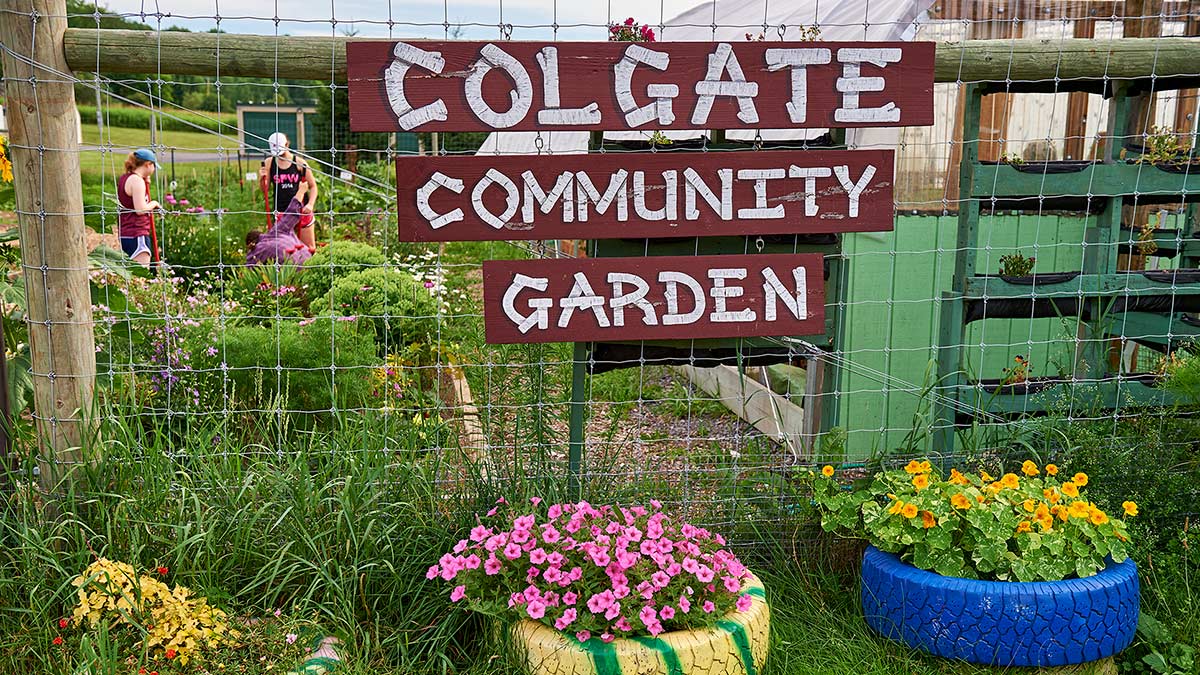

In 2011, Colgate set itself on an ambitious pathway to carbon neutrality, committing to reaching this goal by 2019.
To learn more about Colgate's carbon neutrality efforts, please read our Carbon Neutrality and Carbon Offsets FAQ.
Campus Culture

Colgate's sustainability efforts have promoted programs and strategies that foster sustainable behavior and decision-making by providing educational resources, generating excitement, and raising awareness around issues of sustainability in our living, learning, and working environment.
- 2011: The university released its first Sustainability and Climate Action Plan.
- 2010: Students, faculty, and staff broke ground on the Community Garden, helping to source more local food into Colgate’s dining halls. Originally located adjacent to the Newell Apartment buildings, the garden has since relocated to a more suitable plot along Route 12B on the southern edge of Hamilton.
- 2005: The first Environmental Council of faculty, staff, and students formed to improve efforts toward sustainability on campus. This was later renamed the Sustainability Council.
Curriculum and Learning

For years, Colgate's strong Environmental Studies Program has provided obvious opportunities for students and faculty to intellectually grapple with issues of the environment and sustainability. However, the most meaningful learning on these issues is possible when they are a shared curricular responsibility across departments and divisions.
Campus Operations
How members of the Colgate community approach day-to-day business has large ramifications for our ecological and carbon impacts. Energy and buildings, transportation, waste, and water-use strategies have all been explored and adjusted.
- 2018: Colgate will upgrade the biomass boiler in the heating facility.
- 2016: First geothermal heating and cooling project installed in Chapel House.
- 2015: Green Building Standards were approved and incorporated into the campus’s overarching Building Design and Construction Standards.
- 2013: A solar thermal array was installed at 100 Broad Street residence hall.
- 2009: Colgate hired its first Director of Sustainability.
Ecosystems and Land Stewardship
Respecting and protecting our natural heritage and physical resources is vital to both our academic mission and attachment to place. We have taken the opportunity to think critically about how we treat our land, and where we have room for improvement.
- 2014: Colgate earned American Tree Farm System certification for long-term sustainable forest management.
- 2013: Completed our first forest carbon inventory to determine how much carbon is sequestered — 1,578 tons CO2 annually.
Food and Dining
We have adopted strategies that promote environmentally sound dining operations and procurement of local and sustainable foods while supporting our local economy.
- 2010: Frank Dining Hall begins to serve food from the newly planted Community Garden. By supporting locally produced food, we reduce emissions associated with transportation.
Committed to the Future
Along the road to sustainability, Colgate has made a series of commitments — several look beyond 2019 as we build on our carbon neutrality and make sustainability a way of campus life.
Reduce landfill waste to 650 tons in 2019 with an aspirational goal of becoming a zero-waste campus by 2025
Looking forward, Colgate needs to continue to improve and grow its waste-reduction programs so that less waste is generated and more is diverted from the landfill. Opportunities such as replacing one-time use disposable containers with reusable options are necessary for reducing landfill waste on campus. And, finally, composting organic matter (yard waste and food scraps) can result in huge reductions in our landfill waste stream. Perhaps the single most important strategy Colgate could implement to reduce landfill waste would be to expand our existing composting program. By weight, food scraps make up a significant portion of our landfill waste.
Reduce water consumption to approximately 50 million gallons by July 1, 2019
Building on our past successes, Colgate needs to continue to expand and grow its water conservation programs. Reducing irrigation on our athletic fields and golf course presents a good opportunity. Raising awareness and supporting our Green Raider and Green Office Programs can go a long way in further reducing water consumption at Colgate. Perhaps the most aspirational project(s) the university could implement would be to utilize water reclamation and biofiltration technologies to recycle greywater for non-potable uses on campus.
Complete an initial climate adaptation plan by September 1, 2019
Annual average temperatures in New York State have risen about 2.4°F since 1970, with winter warming exceeding 4.4°F. That makes New York State the 8th-fastest warming state in the country. Aside from rising temperatures, New York State and central New York, in particular, are experiencing summer droughts punctuated by heavy rain events, heat waves, extreme weather events, and significant shifts in natural seasonal cycles. Our changing climate will impact life in central New York and campus operations.
Colgate’s adaptation plan should include specific actions that will help build adaptive capacity. Communities and institutions with high adaptive capacity minimize risk and are better prepared to deal with climate change impacts.
